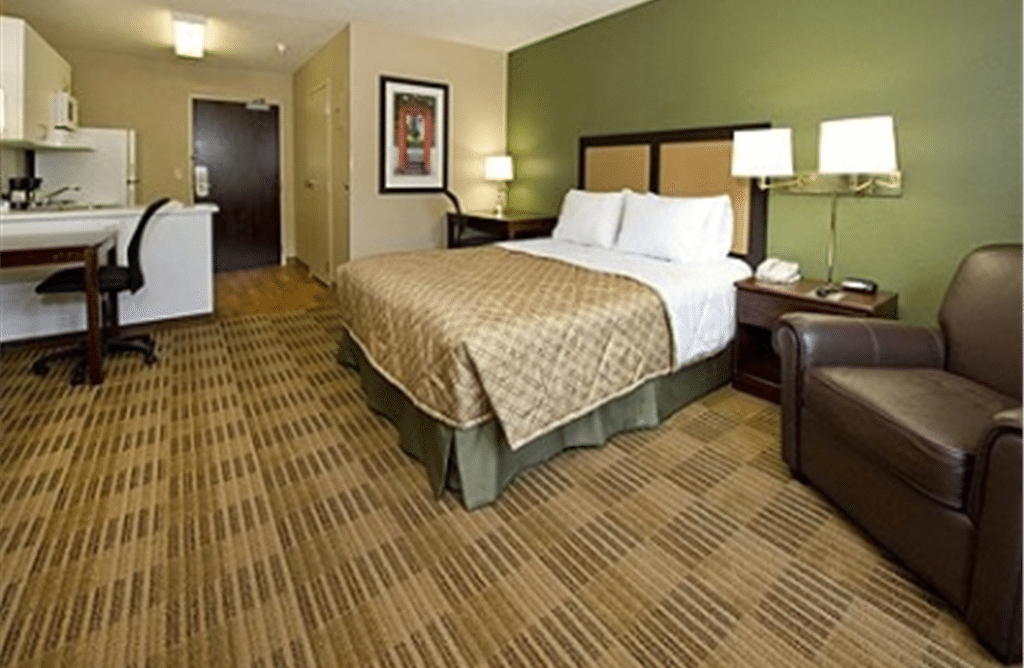Skift Take
Extended stay hotels don't have a real threat from Airbnb, but they may have a good distribution partner in the platform.
Although some financial analysts and others view Airbnb as a threat to the incumbents in the extended stay category, Extended Stay America officials believe the two companies address different markets and downplayed the challenge.
During Extended Stay America’s third quarter earnings call Tuesday, chief marketing officer Tom Seddon said Airbnb operates at the “very urban core” in markets including San Francisco, New York, and Miami.
“Largely I think it is because they [Airbnb] really have been building in a different area,” Seddon said. “If you look at San Francisco, we don’t really have anything that is in that downtown San Francisco core. We have a ton of hotels in the general area, and some of those customers are staying with us and commuting into San Francisco, but [Airbnb] is really not something we have seen at this point as having any kind of material impact.”
“I am not sure that we really are working on a directly competitive customer at this point,” Seddon said.
Extended Stay America CEO Gerry Lopez agreed that Extended Stay America’s core business is different than Airbnb’s. Extended Stay America guests often book accommodations for longer periods of time while Airbnb guests are more rotational, booking “a few days at a time.”
“A significant portion of our business is with the 30-plus stay, or the 30-plus guest,” Lopez said. “Having used Airbnb in prior lives, I don’t know that when people welcome strangers into their home it’s a 30 day thing.”
Many lodging companies, ranging from hotel chains to vacation rental site HomeAway, have downplayed the impact and overlap with Airbnb. Extended Stay America will be keeping an eye on Airbnb, Lopez said.
“We will see in the future whether they are a potential distribution channel for us, a competitor or what,” Lopez said. “For the core of our business — the geography, the type of guest — we seem to be operating in different spaces.”
In other developments, Lopez indicated that Extended Stay intends to focus on getting the most out of its existing operations rather than creating a new brand or changing the business model.
Lopez said that the company’s focus will be on the properties in its fold rather than “setting off in a totally different direction with totally different brands.”
Separately on October 28, Hilton Worldwide CEO Chris Nassetta and CFO Kevin Jacobs addressed the Airbnb issue and its potential threat during Hilton’s third quarter earnings call.
Despite Airbnb’s efforts to appeal to the corporate traveler, the company is not a threat to Hilton, Nassetta and Jacobs said, highlighting Airbnb’s presence in urban markets where there is lots of capacity to capitalize on.
And while Extended Stay America a day earlier said that Airbnb operates in a different space, the Hilton team argued that Airbnb’s biggest threat is indeed in the extended stay category, which takes in both business and leisure travel.
“[Airbnb] is an evolving segment that is satisfying incremental customers,” an official said. “It is not a threat to our core values because of the segment it is carving out and its business model. Airbnb is not able to do what we do, and it services a different kind of need.”
The pair went on to say that Hilton and Airbnb could not replicate each other’s services or business model, and that it is unlikely customers will one day wake up wanting to forgo amenities and services that comes with staying at hotels.
Have a confidential tip for Skift? Get in touch
Tags: airbnb, extended stay america, sharing economy
Photo credit: An Extended Stay America room. Extended Stay America
